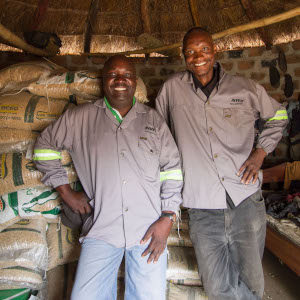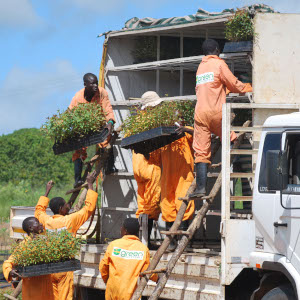Remote and Blended Learning
Different TechnoServe beneficiaries have varying access to technology, access to internet/data, and levels of literacy. To build effective learning solutions, TNS Labs worked with programs to develop user profiles for TechnoServe clients across the 27 countries where we operate.
Capacity building tools based on user personas
Understanding the user – the person who will ultimately be adopting the technology – is always the starting point for building an effective solution.
A rural coffee farmer has very different needs from an entrepreneur in a large city. By understanding user profiles, we can identify which learning approaches and tools are appropriate for different users, and how tools can be shared across programs.
Our approach is described in a short blog post – “How to Create Better Solutions for the Right End User“

Entrepreneurship training
TechnoServe has developed over 300 online courses to train clients and TechnoServe business advisors.
Our digital enablement work started a few years ago with a study of entrepreneurs in Guatemala, Ghana and Botswana. Read our original report “Supporting Entrepreneurs with Digital Tools: How to make Remote Learning Impactful” and the recent Argidius study and toolkit “How to Fulfill the Potential of Business Development Services using SCALE.”

Agri-SME Training
By providing one-on-one core business strategy support for agronomic advisory, marketing, distribution, product development and operations management, our programs have increased growth for our portfolio companies by an average of 38 percent.

Engaging women entrepreneurs with radio and IVR
TechnoServe’s Women in Business (WIN) program in Mozambique disseminates entrepreneurship training content through Radionovela Janete and uses Interactive Voice Response (IVR) with short audios on various topics, which can be accessed free with a text short code.
Read more about the WIN program and their use of IVR, and about TechnoServe’s approach for using radio as a part of training in rural areas.

Digital enablement for communities without access to digital tools
By augmenting and complementing the human-to-human model, digital technology can significantly enhance the impact of effective training programs, making them massively scalable.
Read more about our approach in the report “Digitally Enabled Training for Unconnected Farmers.”
